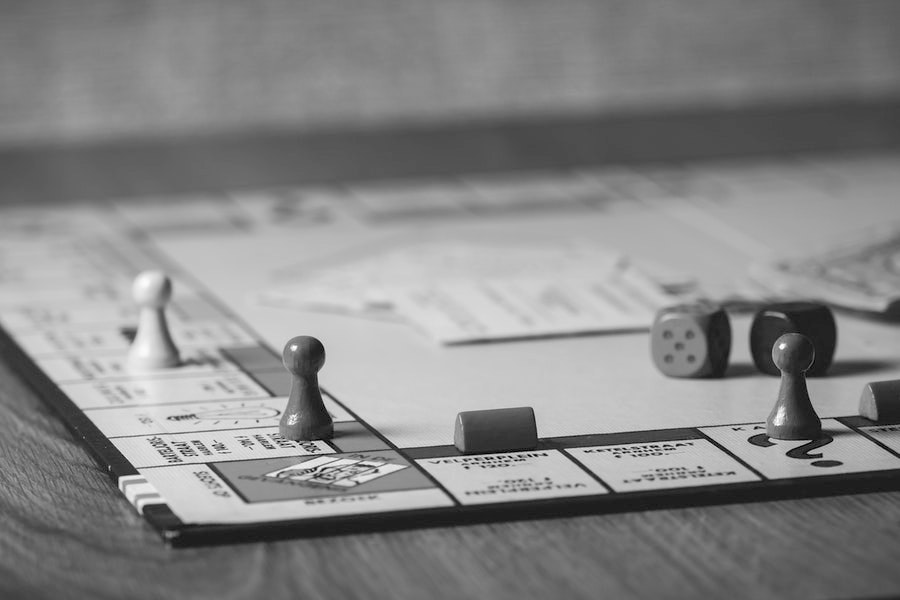In this very special series of exclusive articles for the Property Chronicle, Australian property legend Norman Harker will reflect on his extraordinary 50-year life in real estate. He will pull no punches partly because, as he freely admits, Norman has a limited life expectancy of five years from December 2018 due to a diagnosed terminal blood cancer, which he has cheerfully accepted in preference to (in his words) “kicking the bucket without notice”. We are honoured he has chosen us to publish these brilliant, funny and incisive reflections of a lifetime in property.
Chapter 1: A valuer aged seven – early signs of a calling
At the age of seven it was already too late – I had started on the downhill path to becoming a valuer. For Christmas I was given a Monopoly set.
My parents had four boys in 1941, 1943, 1945 and me in 1947. Later they evened things up and my sister arrived in 1952. I was born in February. That made me a Pisces and born in the Chinese Year of the Pig – very similar traits, apparently, for those who believe that fish and pork chops go together.
Being the youngest and with a brother just 17 months older, I was intensely competitive. This game fascinated me. It was not just luck, like snakes and ladders. You had to make decisions as well. If you made the best decisions, you usually won.
Which properties gave the best returns? The second set on each side was best because developing cost the same but rents were higher. Mayfair and Park Lane looked best. But they took all your starting cash just to get one house, and rents did not really get serious until two or three houses. Euston, Angel and Pentonville were high-return but first throws of the game made it likely the set would be split two or three ways.
Aha! Orange is best! High return on development cost. Higher probability of someone landing on them during the game because of getting out of jail.
Once you had a set? Don’t hang about! Hit them before they get money each round. No point having those odd properties. Mortgage everything else to fund the development.
Mayfair and Park Lane looked best.
But they took all your starting
cash just to get one house
Sell and swap, but watch how much cash the opposition have left. Big brother thought I was dumb! Swapped Park Lane for one Orange and $600. But that left him with no cash. I mortgaged all I had, developed, and he and the others were gone.
Later I read the rules – and that, of course is the ‘first rule of valuation’ – RTFI – Read The Fine Instructions. IVSC, RICS Red Book etc.; call it ‘terms of engagement’.
What is this about housing shortage? I had the ‘cheapo’ browns and blues and my brothers had posh sets elsewhere. But building was cheap, and I had enough for five hotels. No! I’ll stop at four houses on each! Five times four is 20. That leaves only 12 houses remaining. Slowly but surely, they were drained. I was as popular as our dog after eating bones, but I won.
Going forward 20 years, I competed in an annual Monopoly tournament run by ‘young’ RICS. You played in pairs, and I paired with my colleague and lifelong friend Roger Emett, now retired on the west coast of Ireland. We developed the ‘bankruptcy game’ as we called it.
As soon as you realise that you’re not going to win, you say to the most likely winner, “Buy (e.g.) Waterworks from me for $2,000 or I’ll sell your opponent the blue property he needs for $1.” Those players with a sense of humour almost filled their beer glasses with tears of laughter. Those on the receiving end had different reactions! One pair stormed out – a not unusual end to a friendly game of Monopoly.
I had already started to think about ethics, which used to be regarded as the shortest subject of study in property. Those Monopoly ploys were great for a game but in real life? I have seen variations of that tactic ‘played’.
I had developed the view that my greatest asset as a professional valuer was not my skills in valuation, nor my fee-earning potential, nor my good looks, charm and modesty. It was my reputation for integrity. Ethics to me was not a county in south-east England, it was not based upon a particular religious code; it was based upon my own self-interest. Behaviour that risked that reputation for integrity tended to be regarded as unethical. Those views formed the questions I asked on new problems. “How do others see this? Do others regard this as unethical? Does this prejudice my reputation for integrity?”
You can get a lot of sound property valuation knowledge out of Monopoly.







